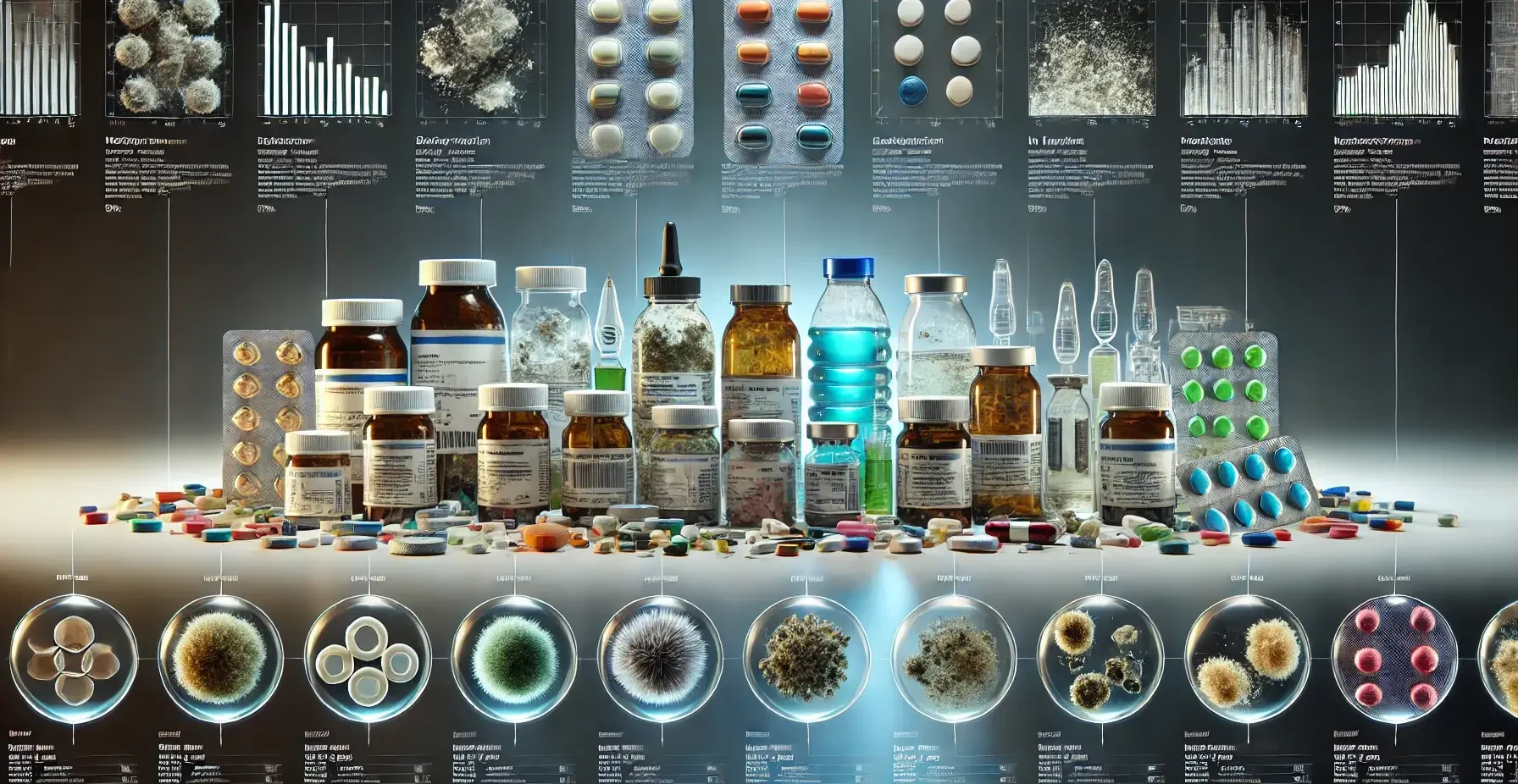- Types of Spoilage in Pharmaceutical Products is spoilage in pharmaceuticals can be categorized into three main types:
- While all types are important, microbial spoilage is the focus here due to its direct impact on product safety.

1.Chemical Spoilage in Pharmaceutical Products
-
Definition:
- Degradation of the active pharmaceutical ingredient (API) or excipients due to chemical reactions.
-
Examples:
- Oxidation: API reacting with oxygen leading to loss of potency.
- Hydrolysis: Breakdown of compounds due to reaction with water.
- Photolysis: Degradation caused by exposure to light.
-
Impact:
- Loss of efficacy, formation of toxic degradation products.
2.Physical Spoilage
-
Definition:
- Changes in the physical properties of the product without altering chemical composition.
-
Examples:
- Caking: Clumping of powders.
- Phase Separation: In emulsions and suspensions.
- Precipitation: In solutions due to temperature changes.
-
Impact:
- Affects drug delivery, dosing accuracy, and patient acceptability.
Advertisements
3.Microbial Spoilage
-
Definition:
- Deterioration of the product due to the growth and metabolic activities of microorganisms.
-
Examples:
- Visible Mold Growth: On tablets or creams.
- Bacterial Contamination: Leading to turbidity in solutions.
- Gas Production: Causing containers to bulge.
-
Impact:
- Potential infection risk, reduced efficacy, product recalls.

